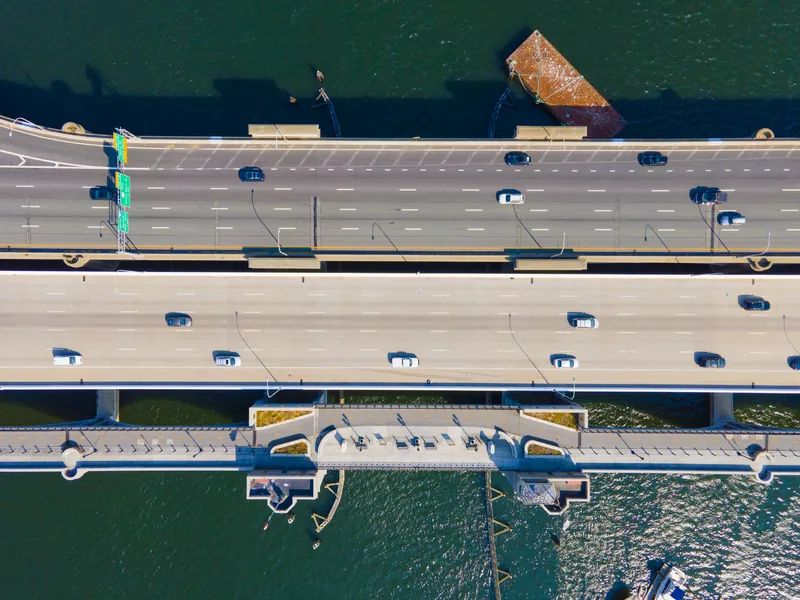The Freight Transport Association (FTA) has called on members of the Welsh Affairs Committee to press the Government for clearer information about the future of the Severn crossings, which return to public ownership in 2018.
FTA appeared before the Welsh Affairs Committee in Chepstow alongside FTA member Owens Group to give evidence about the two bridges, which are currently operated by Severn River Crossing PLC. The bridge tolls are amongst the highest in the country and FTA is seeking clarity about t
June 14, 2016
Read time: 2 mins
The 6983 Freight Transport Association (FTA) has called on members of the Welsh Affairs Committee to press the Government for clearer information about the future of the Severn crossings, which return to public ownership in 2018.
FTA appeared before the Welsh Affairs Committee in Chepstow alongside FTA member Owens Group to give evidence about the two bridges, which are currently operated by Severn River Crossing PLC. The bridge tolls are amongst the highest in the country and FTA is seeking clarity about their future.
According to Ian Gallagher, FTA’s Head of Policy for Wales, the future is uncertain for businesses and commuters who rely on the bridges every day. He said it is unthinkable to be so close to the transition date and still not know what this will mean for users and staff.
FTA’s appearance follows written evidence already provided to the Committee in May, where the Association called for the tolls to be either scrapped altogether or reduced to a level that covered only maintenance and operating costs.
Gallagher added: “The net toll revenue received by Severn River Crossing PLC was around £98 million in 2015. Maintenance costs for the bridges are around £15 million so there is genuine scope to reduce the tolls much further than the 50 per cent level announced by the Chancellors at the last budget.”
As a frequent user of the bridge, Owens Group called on the Committee to press the Department for Transport (DfT) in the strongest terms to come up with a solution that is both representative and fair. Ian Jarman of Owens Group said that, with the handover of both of the Severn crossings back into public ownership potentially as early as October 2017, it is important that the industry gains cross-party support for this issue.
Commenting on the current operation, Jarman said there is an urgent need for free-flow technology to be used to ease congestion around the toll plazas, along with the need for high frequency discounts and the potential of off-peak running time discounts.
FTA appeared before the Welsh Affairs Committee in Chepstow alongside FTA member Owens Group to give evidence about the two bridges, which are currently operated by Severn River Crossing PLC. The bridge tolls are amongst the highest in the country and FTA is seeking clarity about their future.
According to Ian Gallagher, FTA’s Head of Policy for Wales, the future is uncertain for businesses and commuters who rely on the bridges every day. He said it is unthinkable to be so close to the transition date and still not know what this will mean for users and staff.
FTA’s appearance follows written evidence already provided to the Committee in May, where the Association called for the tolls to be either scrapped altogether or reduced to a level that covered only maintenance and operating costs.
Gallagher added: “The net toll revenue received by Severn River Crossing PLC was around £98 million in 2015. Maintenance costs for the bridges are around £15 million so there is genuine scope to reduce the tolls much further than the 50 per cent level announced by the Chancellors at the last budget.”
As a frequent user of the bridge, Owens Group called on the Committee to press the Department for Transport (DfT) in the strongest terms to come up with a solution that is both representative and fair. Ian Jarman of Owens Group said that, with the handover of both of the Severn crossings back into public ownership potentially as early as October 2017, it is important that the industry gains cross-party support for this issue.
Commenting on the current operation, Jarman said there is an urgent need for free-flow technology to be used to ease congestion around the toll plazas, along with the need for high frequency discounts and the potential of off-peak running time discounts.









